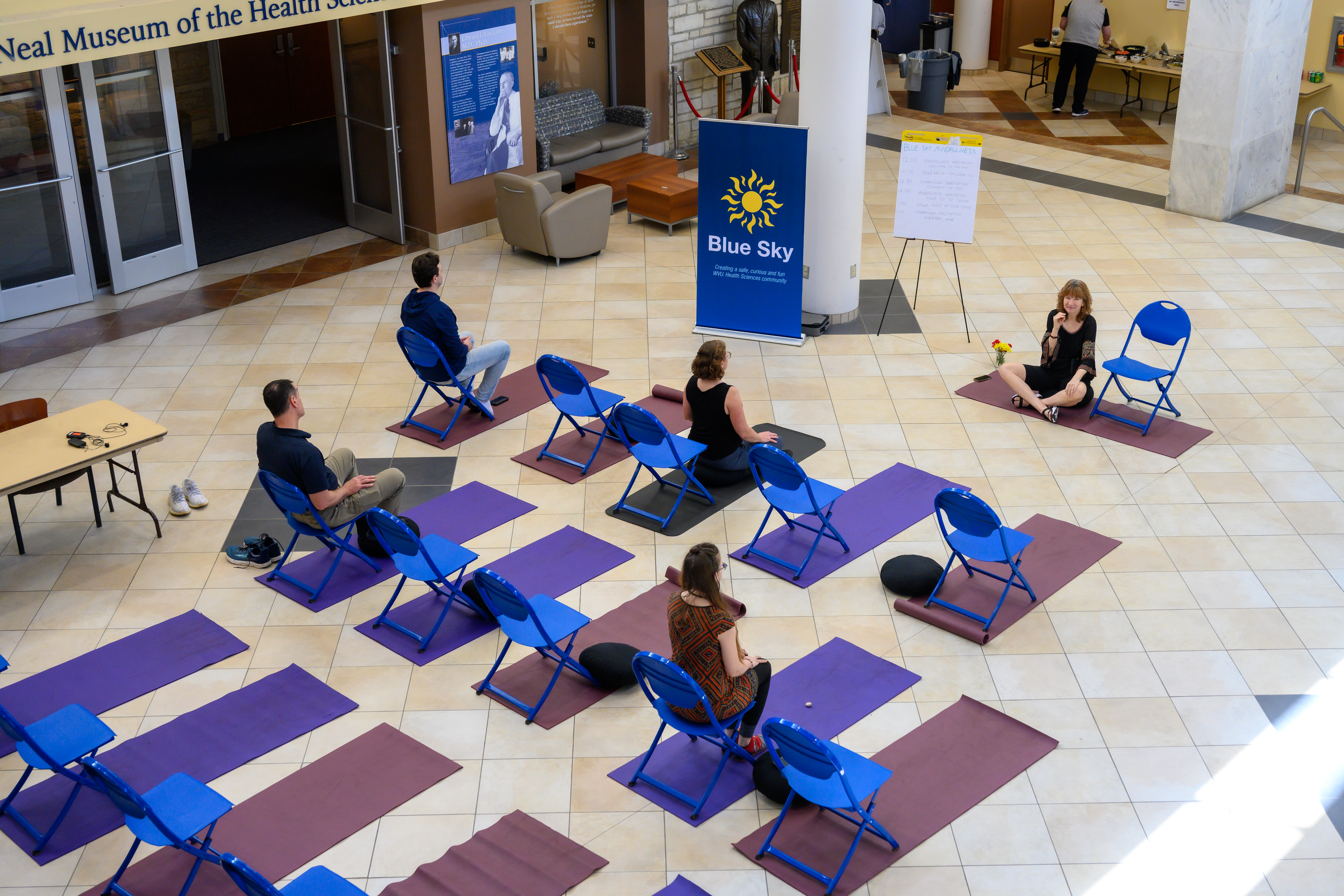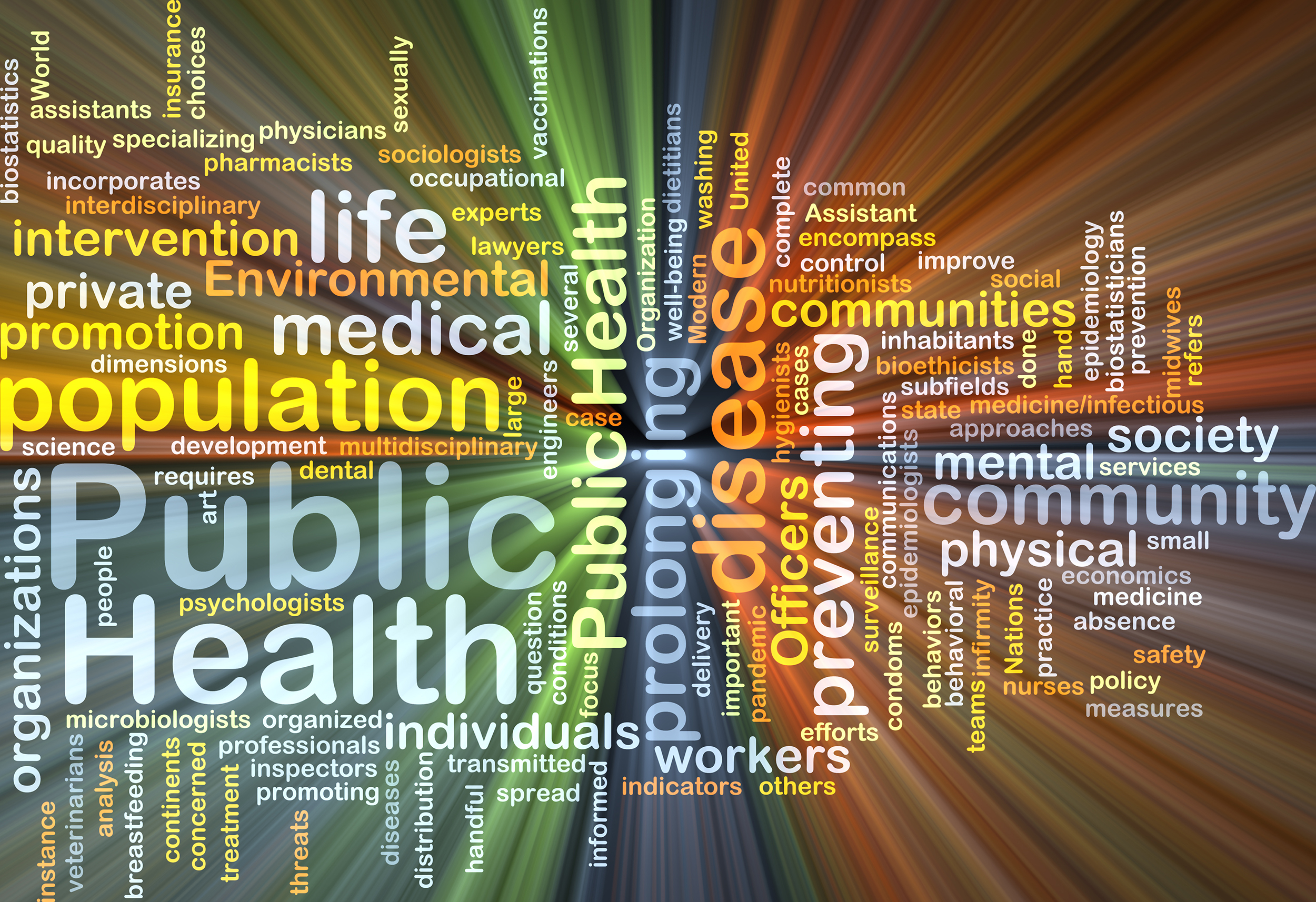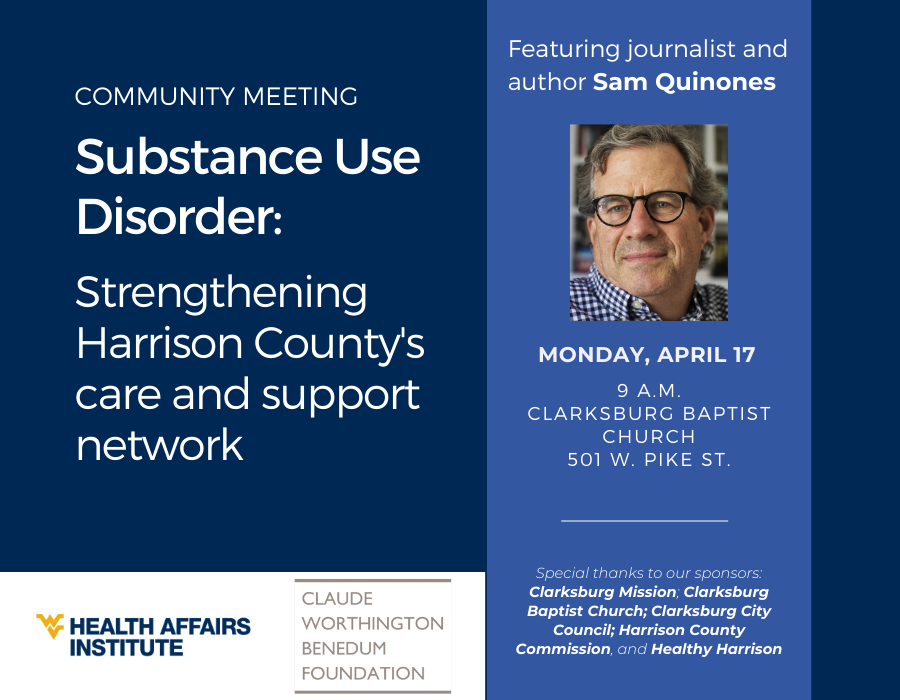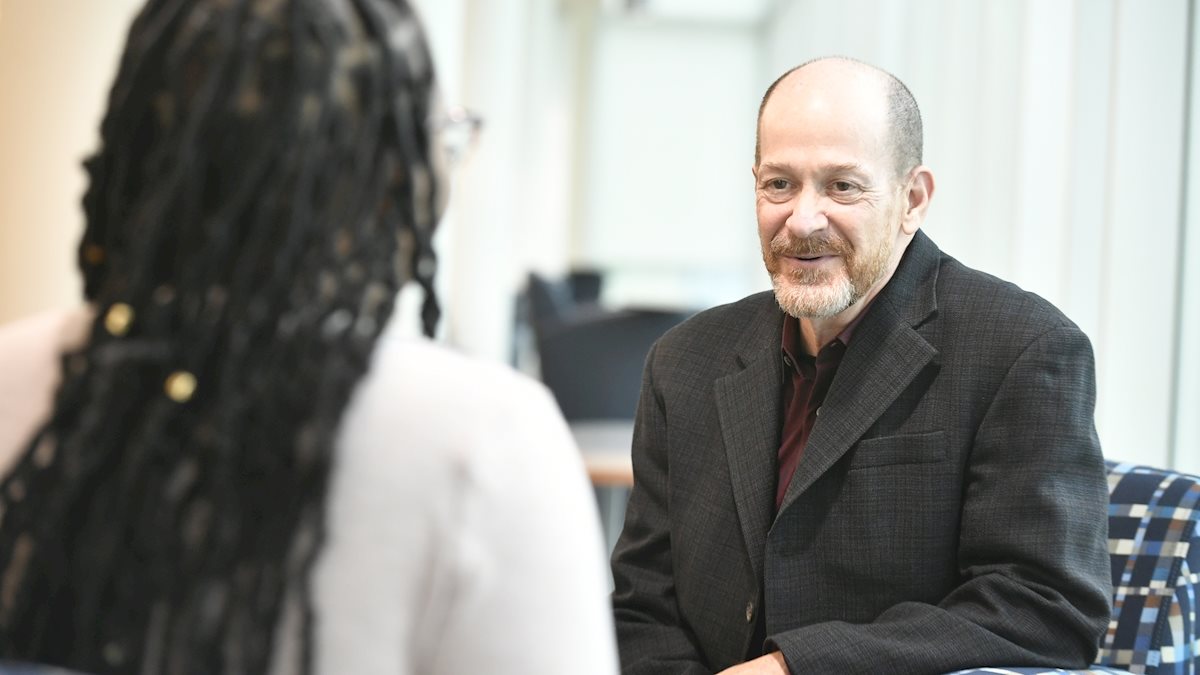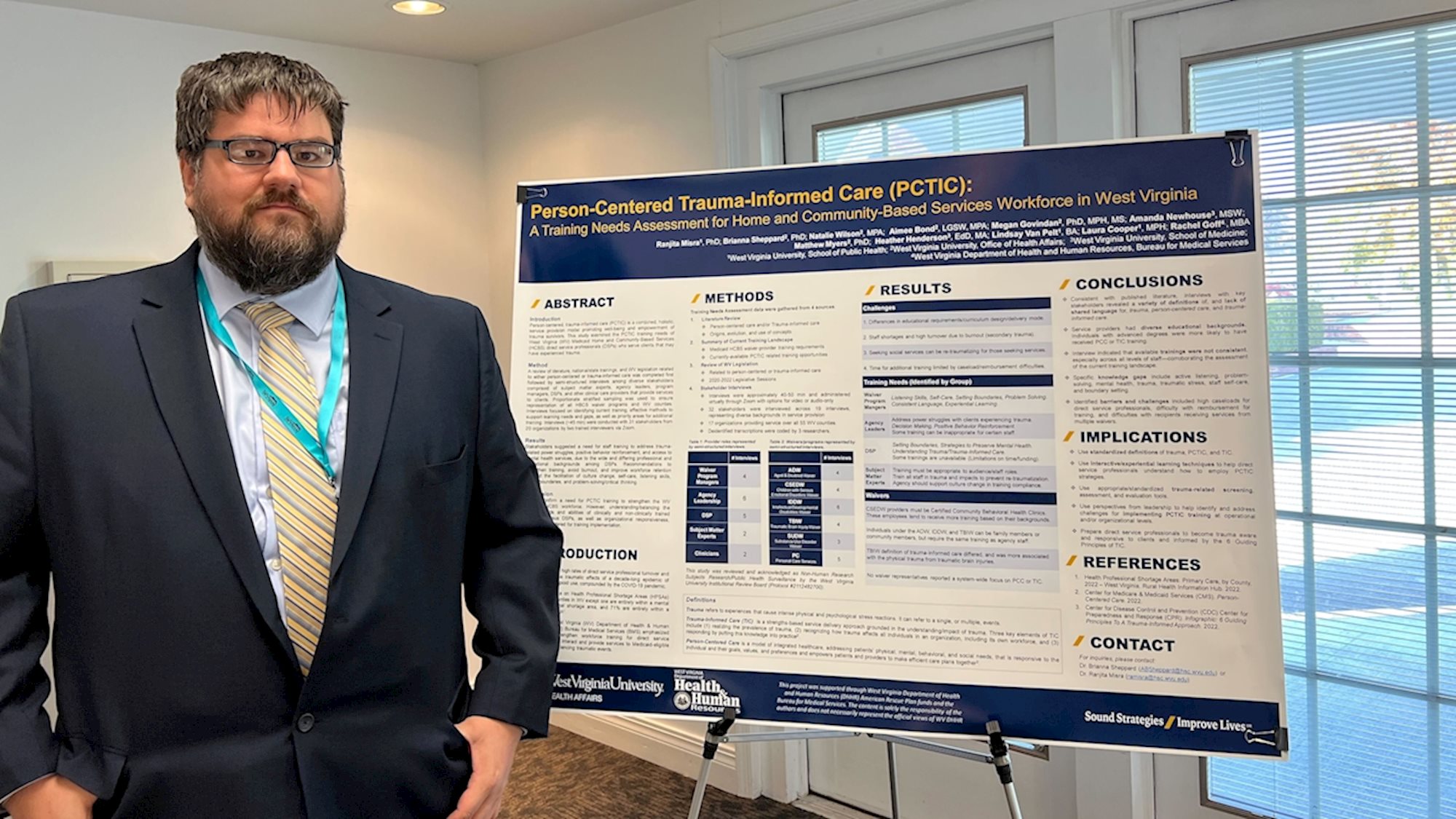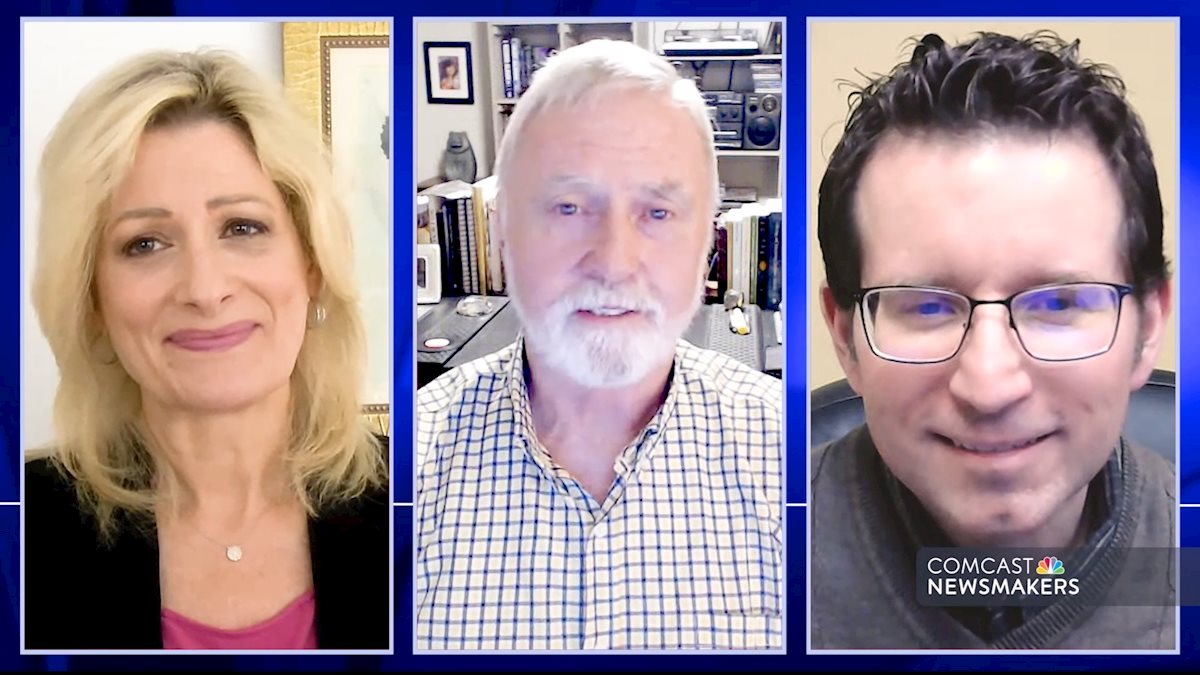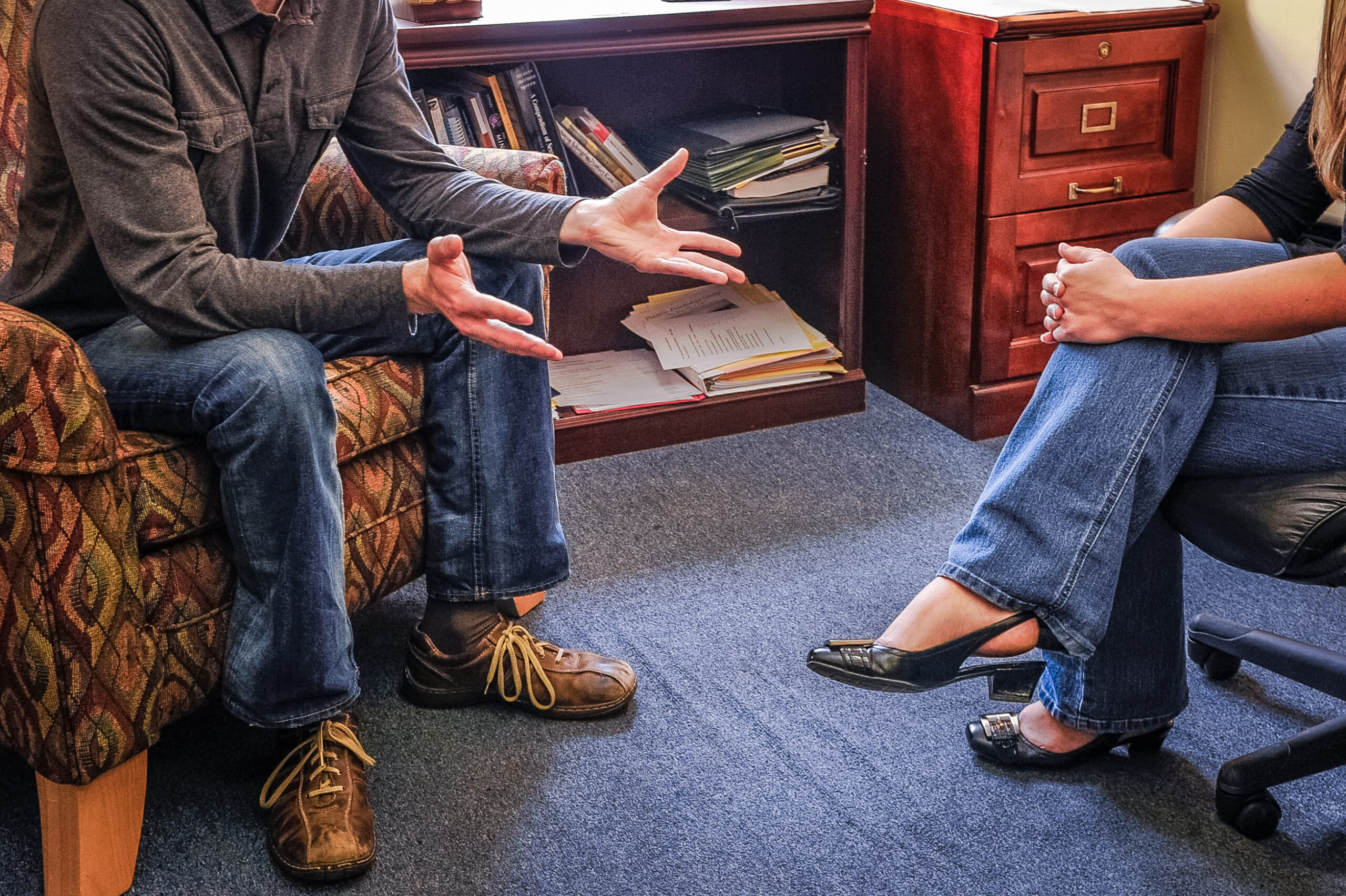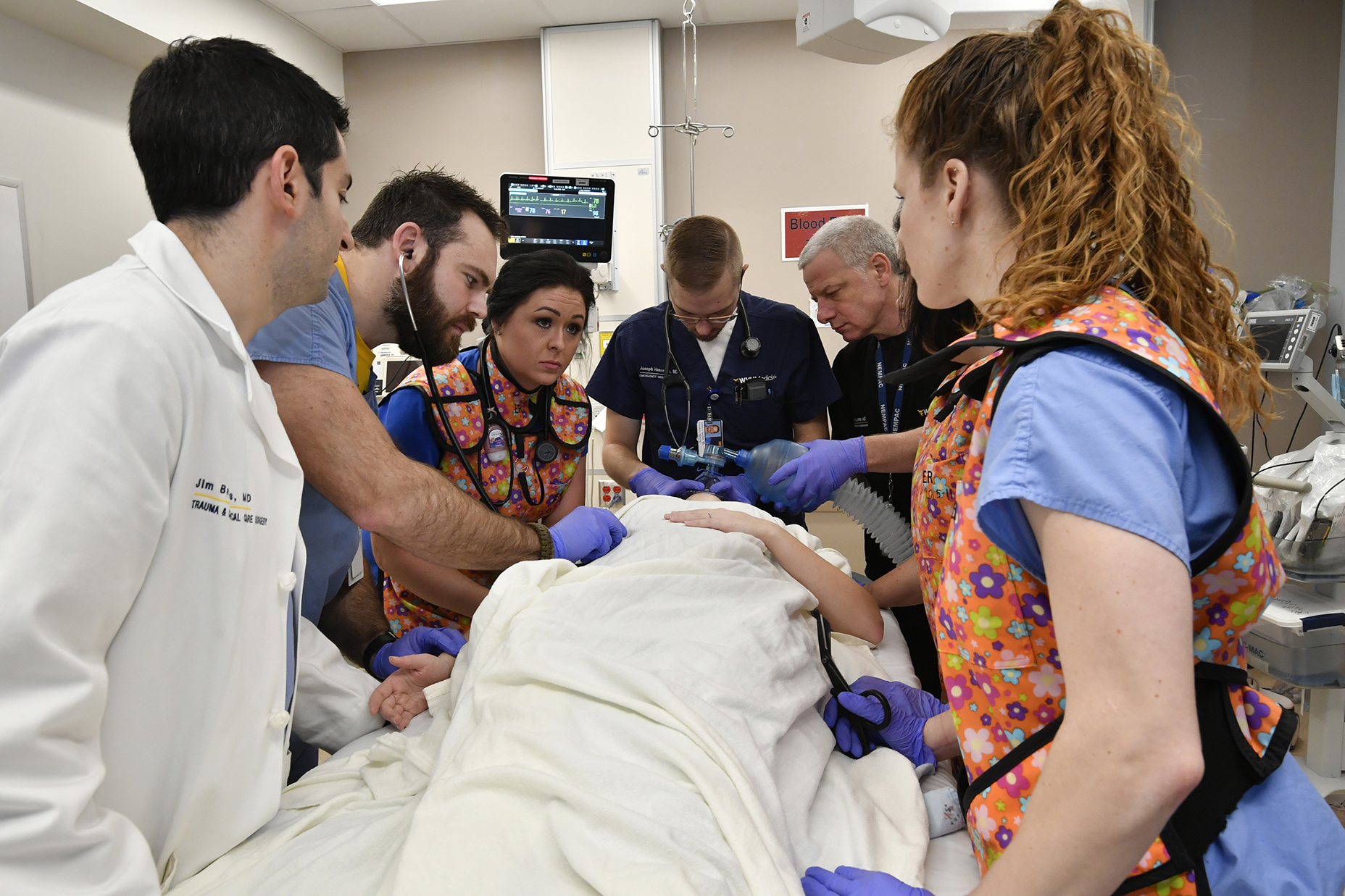State-University Partnership Network (SUPLN): Dr. Tom Bias begins second year of term, welcomes Cynthia Parsons, to Steering Committee
Dr. Tom Bias, Associate Director of Medicaid Services at WVU Health Affairs Institute, will begin his second year of service on the State-University Partnership Learning Network’s (SUPLN) Steering Committee. The latest round of committee members includes five state representatives and five university representatives, including Bias and Cynthia Parsons, Director of Behavioral Health and Long-Term Care in the West Virginia Department of Human Services’ (DoHS), Bureau for Medical Services (BMS).
“This year I’m so excited to have Director Cynthia Parsons join us on the steering committee,” Bias said. “We have strong representation from both the state and university on the steering committee now for West Virginia and I’m excited to be able to work directly with her to leverage these partnerships nationally to strengthen the work of Health Affairs and the Bureau for Medical Services.”
The State-University Partnership Learning Network (SUPLN), managed by AcademyHealth’s Evidence-Informed State Health Policy Institute, collaboratively works to support evidence-based state health policy and practice with a focus on transforming Medicaid-based healthcare, including addressing health inequities and improving the patient experience, health of populations, and efficiency in healthcare.
According to Bias, working on the SUPLN Steering Committee generates robust ideas for research, evaluation, data management, and strategies for the state to address some of our most challenging issues, especially around Medicaid.
“Being able to serve as a member of the SUPLN steering committee allows me to help advise on and shape some of the most powerful partnerships in the country, such as the one Health Affairs has with DoHS,” Bias said. “Not only do we learn how other states have implemented these strong university-state partnerships, but we get to coordinate and collaborate with each other, helping everyone’s work get stronger.”
To learn more, visit academyhealth.org.
For media inquiries, contact Shelly Davidov, Communications Specialist, at sdavidov@hsc.wvu.edu.



